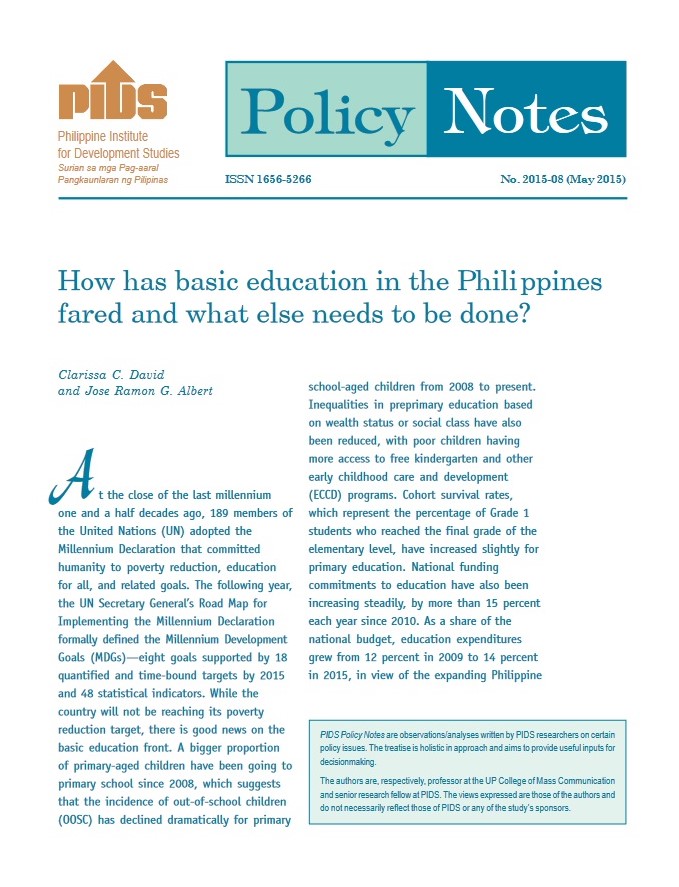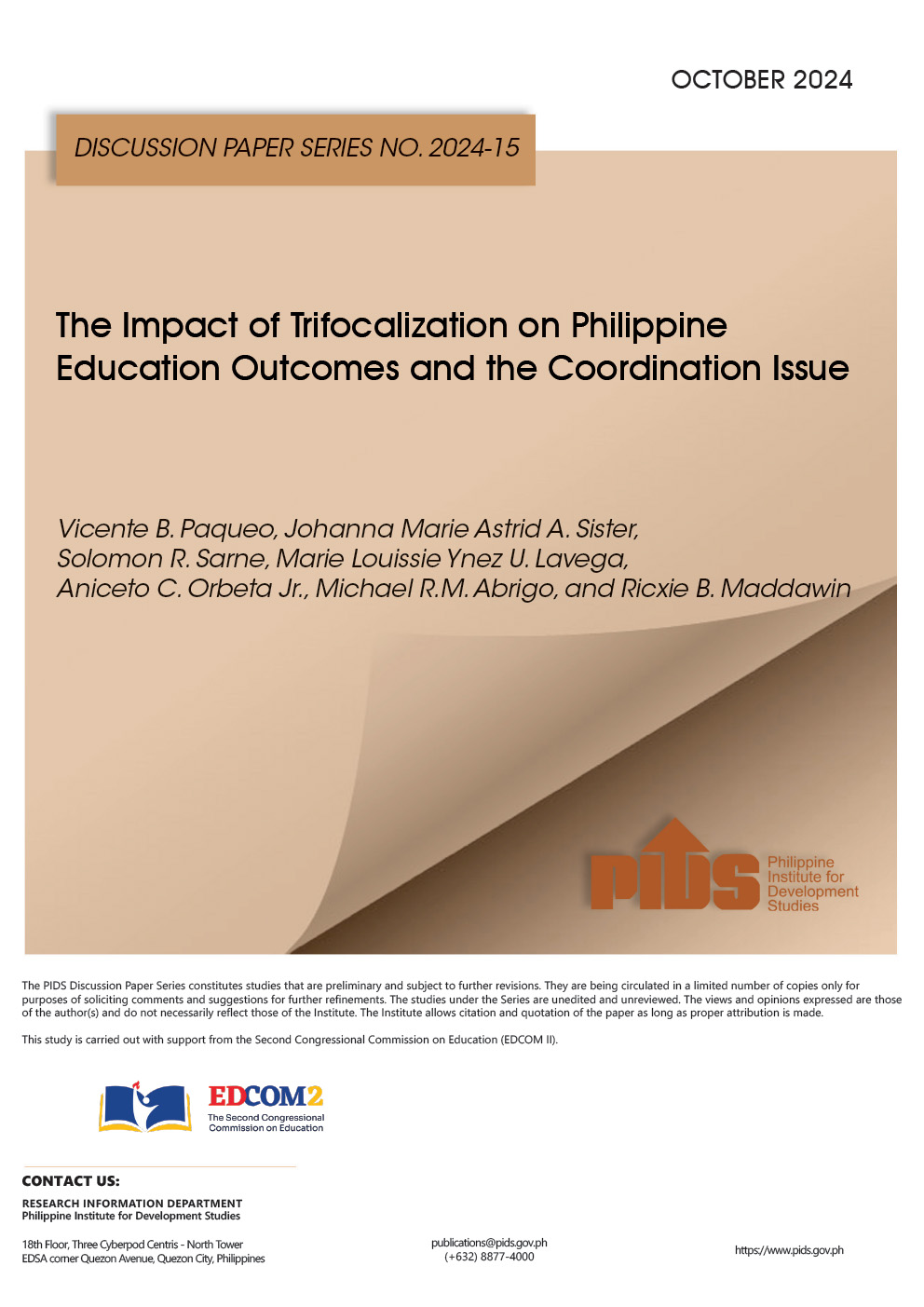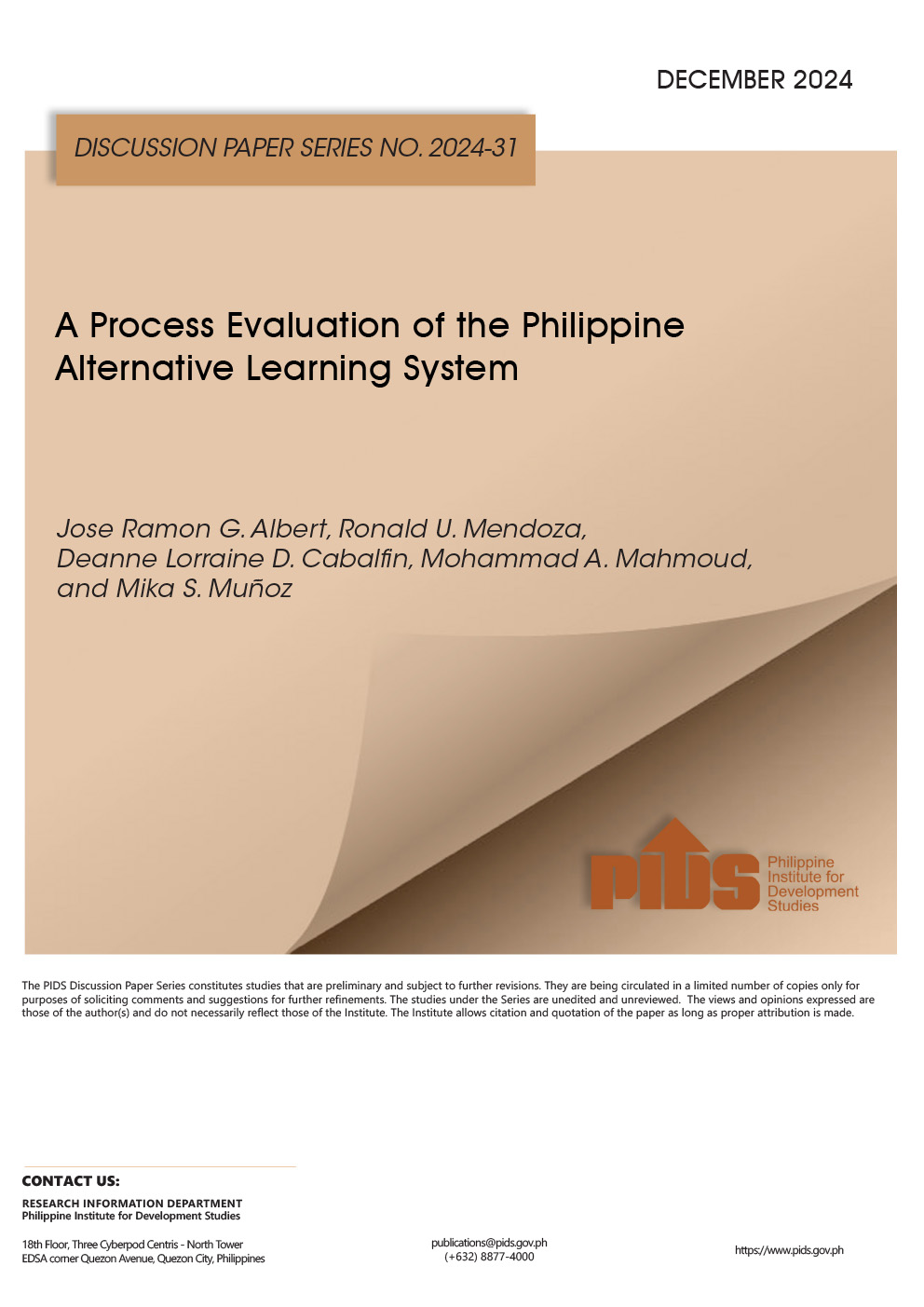One of the Millennium Development Goals is to achieve universal primary education. For the Philippines, there is good news to achieving this target. A bigger proportion of primary-aged children have been going to primary school since 2008, which suggests that the incidence of out-of-school children (OOSC) has declined dramatically for primary school-aged children. Three interrelated factors can be largely attributed to decreasing OOSC in the country. First is the passage and full implementation of mandatory kindergarten and the K-12 Law, which aims to enhance the basic education system through key reforms in the curricula and addition of two years and kindergarten to basic education. Second is the increasing budget that the Department of Education has obtained from the national government. And third is the expansion of the government's conditional cash transfer program, the Pantawid Pamilyang Pilipino Program, that requires families under the program to send their children to school. These three broad programs changed the way basic education is implemented in the country, and have helped bring the country closer to its goal of universal education.













